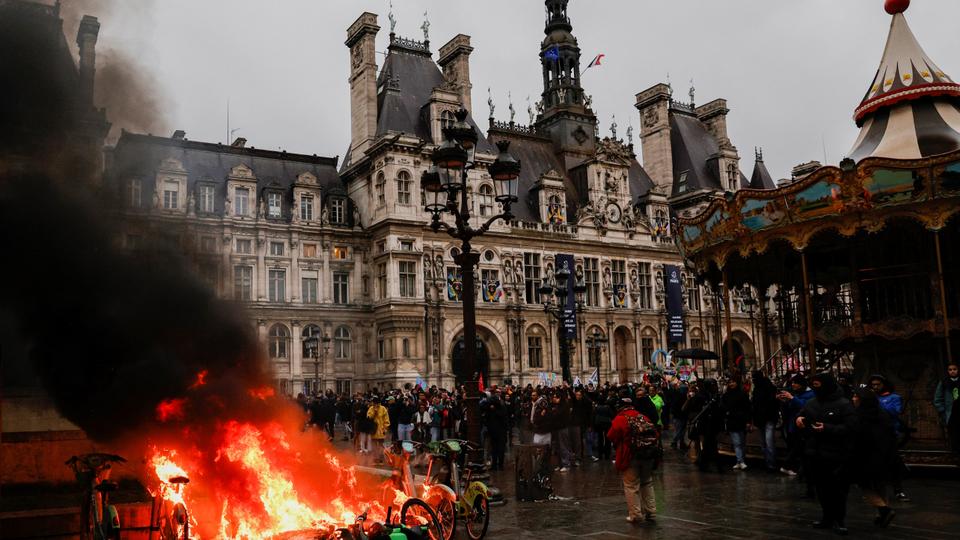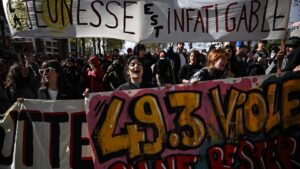France’s constitutional court has approved the key elements of President Emmanuel Macron’s pension reform, paving the way for him to implement the unpopular changes that have sparked months of protests and strikes.
The nine-member Constitutional Council ruled on Friday in favour of key provisions, including raising the retirement age to 64 from 62, judging the legislation to be in accordance with the law.
Six minor proposals were rejected, including efforts to force large companies to publish data on how many people over 55 they employ and a separate idea to create a special contract for older workers.
The decision represents a victory for Macron, but analysts say it has come at a major personal cost for the 45-year-old while causing months of disruption for the country with sometimes violent protests that have left hundreds injured.
The president’s personal ratings are close to their lowest-ever level and many voters have been left outraged by his decision to ram the pensions law through the lower house of parliament without a vote.
Police expect up to 10,000 people to gather again in Paris on Friday night, raising fears of more vandalism and clashes that have marred recent rallies.
READ MORE: Age of unrest: Understanding the debate over Macron’s pension reforms
‘The fight continues’
It remains to be seen if the months-long effort to block the changes by trade unions will continue, with support for strikes and protests waning.
“The fight continues and must gather force,” wrote the leader of the France Unbowed (LFI) party, Jean-Luc Melenchon, on Twitter.
Unions called on Macron not to sign the legislation into law, which the former investment banker is expected to do in the next 48 hours.
Communist Party leader Fabien Roussel said signing the law “would not be pouring oil on the fire, but a jerrycan full of petrol.”
“I fear an outpouring of anger,” he told the BFM channel.
Last month, a strike by Paris garbage workers left the capital strewn with 10,000 tonnes of uncollected rubbish, while train services, oil refineries and schools have been affected by regular stoppages since January.
Some 380,000 people took to the streets nationwide on Thursday in the latest day of union-led action, according to the interior ministry.
But that was a fraction of the nearly 1.3 million who demonstrated at the height of the protests in March.
In a second decision on Friday, the court rejected a bid from opposition lawmakers to force a referendum on an alternative pension law that would have kept the retirement age at 62.
France currently lags behind most of its European neighbours, many of which have hiked the retirement age to 65 or above.
Opponents of the reform say it penalises low-wage workers who started their careers early, while critics also say it undercuts the right of French people to a long retirement.
Macron has repeatedly called the change “necessary” to avoid annual pension deficits forecast to hit 13.5 billion euros by 2030, according to government figures.
READ MORE: Protesters disrupt Macron’s speech in Netherlands



















































Be First to Comment